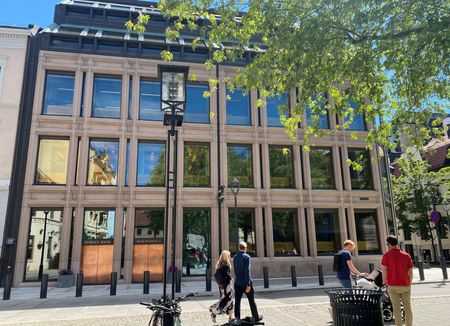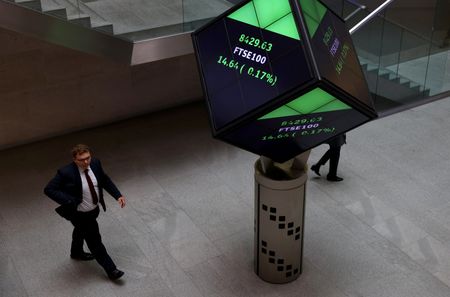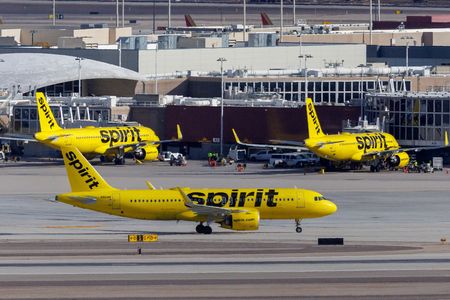By Gwladys Fouche
ARENDAL, Norway (Reuters) -Norway’s $2 trillion wealth fund, the world’s largest, said on Tuesday it expects to divest from more Israeli companies as part of its ongoing review of investments in the country over the situation in Gaza and the West Bank.
The fund announced on Monday it was terminating contracts with all three of its external asset managers who handled some of its Israeli investments and has divested parts of its portfolio in the country over the worsening humanitarian crisis in Gaza.
The review began last week following media reports that the fund had built a stake of just over 2% in an Israeli jet engine group that provides services to Israel’s armed forces, including the maintenance of fighter jets.
The stake in the company, Bet Shemesh Engines Ltd (BSEL), has now been sold, the fund announced on Tuesday. Bet Shemesh did not respond to requests for comment.
Norges Bank Investment Management (NBIM), an arm of Norway’s central bank, which held stakes in 61 Israeli companies as of June 30, in recent days divested stakes in 11 firms, including BSEL. It did not name the other companies.
The fund is now taking a closer look at the remaining 50 Israeli companies in the portfolio and will report back to the finance ministry by an August 20 deadline.
“There is good reason to believe that there will be further sell-outs,” Deputy CEO Trond Grande told Reuters, without saying how many companies could be affected.
The government has repeatedly ruled out divesting from Israel as a whole on the grounds it would mean the fund was divesting from these companies for being Israeli.
The fund began investing in BSEL in November 2023, about one month after the war in Gaza began, via an external investment manager, Tangen said during a press conference earlier. The fund declined to name the external portfolio manager.
Since then, NBIM has held quarterly meetings with Bet Shemesh Holdings, but the war in Gaza was not raised as a theme.
“We had discussions about their business in the United States, not about the war in Gaza,” Tangen said, adding that the fund had rated BSEL as a “medium risk” stock with regards to ethics concerns.
BSEL was later reviewed as a high-risk stock in May. That change should have been quicker, Tangen said, adding that NBIM should have had a tighter overview of these investments earlier.
ELECTION
Norway faces a general election on September 8 and multiple politicians have called on Tangen to resign in light of the Israeli investments.
He ruled out stepping down, saying he had carried out the fund’s mandate, as decided by parliament.
“I haven’t even thought about it,” he said in an interview. “We (at the fund) have not made any kind of formal mistakes. We have ended up in a situation that has been unfortunate, but we are executing on the mandate.”
The fund, which invests the Norwegian state’s revenues from oil and gas production, owns on average 1.5% of all listed stocks worldwide. It also invests in bonds, real estate and renewable energy projects.
Separately, parliament’s constitutional and control committee was meeting on Tuesday to discuss what to ask Finance Minister Jens Stoltenberg regarding the fund’s Israeli investments. It is expected Stoltenberg will have a week to answer the questions, public broadcaster NRK reported.
EXTERNAL PORTFOLIO MANAGERS
The fund’s use of external portfolio managers has also been under scrutiny. NBIM is now looking through its procedures regarding all external portfolio managers and the risk of relationships with Politically Exposed Persons (PEPs), Tangen said.
One immediate lesson, he said, is that “if we have a country that goes into war, we would probably take the asset management back very quickly”. He did not say if the fund would make additional changes.
For non-Israeli companies with business in Israel and the Occupied Palestinian Territories, the fund would continue to monitor the ethical risk they may pose and grade them in different risk categories, Grande said.
That work would be done with the fund’s ethical watchdog, the Council on Ethics, which makes recommendations for divestments if the companies are deemed to breach ethical guidelines set by the Norwegian parliament.
(Reporting by Gwladys Fouche, editing by Terje Solsvik and Sharon Singleton)











